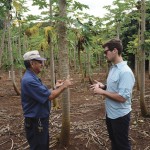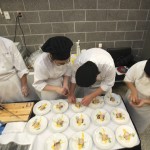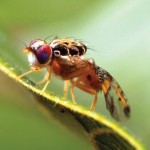
Tag Archives Biotechnology

Corn and soybeans headed north and west
DuPont Pioneer is among a number of companies that see huge growth potential on the western Prairies

A mix of pragmatism and fear keeps GMOs out of Zambia
While the debate over GMO labelling continues in North America, Zambians take it for granted that they aren’t consuming products made with genetically modified ingredients

Politics and the revenge of the food consumer
The USDA has decided to act on growing pressure and establish a voluntary program to label food products with non-GMO content

Manitoba dust storm of 1999, and a “gang of seven” gears up for a fight
Our History: May 1999

The dark side of agriculture in Hawaii
GM variety has helped protect papaya against a deadly virus, but some growers have found their crop vandalized

‘Pyramid’ approach to bug control may be too optimistic
Selection for resistance to one Bt toxin often causes cross-resistance to another

GMO food misinformation a problem: Folta
Food science can help farmers and food processors meet demands of specific demographics

Genetically edited, not genetically modified?
Avoiding introduction of genes from other organisms could alleviate consumer concerns

Population control — just let the males take over
Unlike sterilized males, GM versions are good performers but run out of females

Biotech has role in conservation
No need to be technology averse when it comes to conservation agriculture and improving soil health




